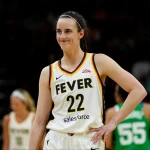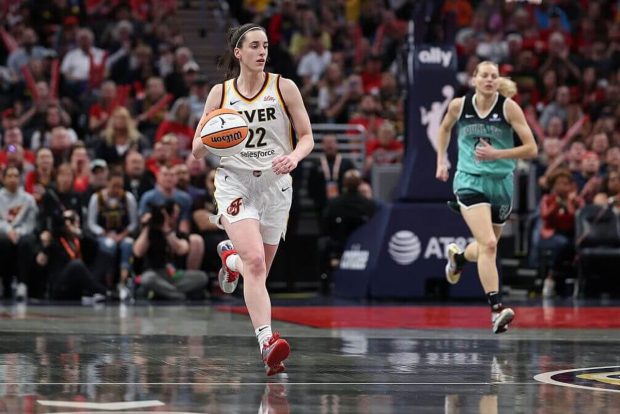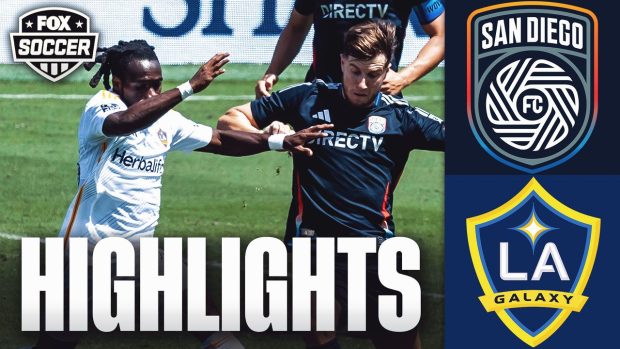And so the cycle continues. Another Manchester United player scapegoated as a problem. Another one who must be expelled in the vague promise of greater days ahead.
By now, it is a familiar routine. There has been no shortage of talented names discarded or written off while at Old Trafford. Some were perceived to lack the quality for the imagined reality of United as a team who win Premier League titles and compete for the Champions League. Others have been framed, fairly or unfairly, as some variation of disinterested, corrosive to dressing room morale, or unable to cope with the pressure of the club.
Advertisement
On Friday night alone, we saw Scott McTominay and Romelu Lukaku, players who did not reach their maximum potential at United, win Serie A with Napoli. The Brazilian Antony, probably considered the worst pound-for-pound signing in United’s history only a few months ago, scored once again for the Spanish team Real Betis. He now has five goals in his last nine.
Anthony Elanga, the Swedish forward, is part of a Nottingham Forest team who can qualify for the Champions League this weekend. Marcus Rashford, for half an hour in an Aston Villa shirt against Paris Saint-Germain in a Champions League quarter-final, looked like the player everyone hoped he would one day become. David de Gea, so worn down by a decade submerged by mediocrity at Old Trafford, required a year out after leaving United but is now thriving again at Fiorentina.
The intention here is not to apply hindsight to every player who has left United. Nor is it to say United were wrong to let any or all of these players go. It may well be that Antony does not possess the physicality for the Premier League, or that the peak of McTominay and Elanga’s talents in a United shirt would be as useful squad players, meaning it was logical to cash in to fund hypothetical upgrades. It may also be that Rashford’s professionalism merited being called into question.

Sold by United, McTominay is now a hero in Naples (Francesco Pecoraro/Getty Images)
But what these cases, and many more over the past decade, should provide is a degree of caution when assessing the club’s decision to sell Alejandro Garnacho this summer. In doing so, it may also be prudent to avoid all-encompassing verdicts, based on a snapshot in time, on both the player’s ability and personality.
On Saturday, The Athletic revealed that the club’s head coach Ruben Amorim first informed his players he intends to remain at the club for next season, before telling Garnacho, the 20-year-old winger, to find a new club. He did so in front of Garnacho’s colleagues.
Advertisement
It represented a dramatic denouement to a month in which Garnacho has dropped out of United’s starting XI, including Wednesday night’s Europa League final defeat by Tottenham Hotspur. That selection marked a low in the relationship between player and manager, but matters worsened due to comments made by both Amorim and Garnacho.
On the afternoon of the final, Garnacho, who dyed his hair for the showpiece game, posted an image on Instagram of goals he had previously scored in finals for United, including last season’s FA Cup win against Manchester City. Against Spurs, Amorim waited until the 71st minute to bring Garnacho onto the field on a night United’s starting team rarely threatened their opponents.
After the game, when Amorim was asked about his decision to favour Mason Mount over Garnacho, the coach said: “So now it is easy to say. Who missed the big opportunity in the first half against (Athletic) Bilbao (in the Europa League semi-final second leg)? Yeah (Garnacho). Of course, now it is easy for us to talk about a lot of views.”
Garnacho was aware of these comments when he walked through the media mixed zone after the game. It was here that Garnacho snapped, letting loose on United’s dreadful season.
“It’s hard for everyone. The season was s***, both now losing the final tonight, and in the league, where we didn’t beat anyone, that’s the truth,” Garnacho told reporters. “Up until the final, I’ve played every round, and today to play 20 minutes… I don’t know. I’m going to try to enjoy the summer and see what happens after.”
Garnacho’s brother Roberto poured petrol on the flames, saying his sibling had been “thrown under the bus” by Amorim.
In the heat of a devastating week for United, the public backlash by the Garnacho family has been ill-received, both by the coach and many United fans. He was the only player told by Amorim in the meeting to leave the club and it would certainly be a surprise if he is included in the squad to play against Aston Villa on the final day of the Premier League season on Sunday.
Garnacho’s now almost-certain departure will divide opinion, although a browse of the most up-voted comments on David Ornstein’s breaking news story about the episode suggests more fans are in Amorim’s corner than that of the player.

Garnacho spoke of his frustrations after the Europa League loss (Carl Recine/Getty Images)
This is a moment that reveals much about United’s current predicament. When Sir Jim Ratcliffe acquired sporting control of United in early 2024, he insisted INEOS would impose a club-wide game model, in which decisions would be made on ins and outs in the medium-to-long-term interest of the club. The aim was to avoid the mish-mash squad that had been assembled to suit the diverging needs of multiple managers over the past decade.
Advertisement
Ratcliffe’s aim, however, appears to have been discarded at the altar of Ruben Amorim’s intransigent system, a 3-4-2-1 formation that requires specialists in multiple positions. During the first seven months of Amorim’s reign, there have been victims of this, most notably Rashford and Garnacho, as well as Kobbie Mainoo, none of whom appear natural fits. As United double down on Amorim, even despite a possible 17th-placed Premier League finish, it leaves them at risk of repeating previous mistakes by funding an expensive reconstruction in a single manager’s image.
Garnacho, at his most natural and instinctive, is a winger who wants to go on the outside. He craves space and he loves the counter-attack. He takes players on and he commits opponents. He is, in many ways, in the greatest traditions of United wide players: fast, direct and unpredictable. He plays with personality and, yes, there is ego. He is, at his best, a showman; the type of player who lifts you off your seat and builds anticipation as he bears down into space. None of this is to say he is perfect.
There are days I watch him and see shades of a very young Cristiano Ronaldo and days I imagine his career could go the way of Adnan Januzaj, another wide player who briefly excelled on United’s wing but whose career ultimately fizzled out. He can be utterly exasperating, choosing the wrong option in the final third, at times choosing a shot instead of a pass, and sometimes snatching at his finishes.
But there is mitigation and context. United is a place where many players shrink. Garnacho, by contrast, craves the scorching spotlight of Old Trafford. On the one hand, bleaching your hair before a major final is eye-rolling levels of cringe, but on the other, it speaks of a young man who wishes to seize the moment. Do United have enough players with such personality?
This season, considering his age and the overall performance of his team, his numbers are impressive. He has 11 goals and 10 assists in all competitions. What the data does not include is the many times Garnacho has flashed the ball across goal in recent months, only to find no United players on hand to apply the finish. Among players below 21, this leaves him behind only Lamine Yamal (of Barcelona) and Desire Doue (of PSG) in Europe’s top five leagues.
Garnacho has 24 goals or assists in the Premier League in 93 appearances. Cristiano Ronaldo took 82 games to hit 25 goal involvements in the Premier League. Also important, particularly given United’s endless injury struggles, is Garnacho’s availability, missing just one of United’s last 104 competitive games in all competitions and starting 75 of them. He can sometimes switch off — see the way he was turned by Reece James in last week’s defeat by Chelsea — but Garnacho can rarely be accused of failing to apply himself. If anything, there are times he can try to do too much, rather than too little.
A 20-year-old forward producing such numbers in a vastly under-performing team would likely be of interest to United if he were doing similar at a different club, while United would do very well to find a player of that age group who can replicate such numbers in the current market at a price they can afford
Advertisement
Garnacho is actually a rare example of United recruiting well, for an initial transfer fee of only £150,000 to prise him away from Atletico Madrid. At United, his emergence has been pockmarked by mishaps; he joined during the pandemic, which brought obvious challenges, but youth team coaches also wanted improvement in his attention to detail, his work rate and positioning. Amorim left him out of the Manchester derby, along with Rashford, shortly after arriving. The Argentine appeared to knuckle down — he started 14 games in a row until being dropped for the 2-0 defeat by West Ham earlier this month. In the three games he did not start since the Europa League semi-final second leg, United have not scored.
At times, Garnacho has been praised by Amorim, but the praise tends to be about his adaptation to the head coach’s system, finding the pockets, coming inside, rather than praise for his natural, more instinctive game. Amorim has said repeatedly he will not alter his way of playing, which may simply mean Garnacho, as a traditional wide player, was always vulnerable. Amorim, too, appears to resent any players who can appear to prioritise the individual before the collective. He does not make exceptions.

Amorim raised Garnacho’s error in the semi-final when questioned (David Ramos/Getty Images)
A sympathetic take on Garnacho’s midweek outburst may simply be that he is a very young man, who is still making his way in his life and his career, and he messed up, demonstrating naivety and petulance. He would not be the first. Ronaldo, his hero, still exhibits petulance at the age of 40. Many of those who have worked with Garnacho on a daily basis acknowledge he is fiercely individually ambitious but also believe he has been desperate for United to succeed.
Garnacho was angry on Wednesday night, but were his comments born out of frustration because he truly believed he could have turned the game as a starter, or because he wished to undermine his manager? Only he can answer this. Equally, it may be fair to ask whether Amorim’s public rebuke about Garnacho’s finishing was calculated to undermine the forward’s standing among media and supporters? Or was this simply Amorim’s emotional and honest response, which reflected his deeply-held frustrations and concerns about the player?
Some may ask, too, whether Amorim, who is brutally honest about his team — even describing them as the worst in the club’s history — may afford his young players a little latitude when they speak out of turn. After all, nothing Garnacho said on Wednesday night was inaccurate, no matter how uncomfortable the words may be for his manager. The reality of a workplace, however, may simply be that the rules are different for the boss.
This, perhaps, was an inevitable conclusion for a player whose personality and playing style rub his manager up the wrong way. When we add this to United’s financial turmoil and their need to balance the books to comply with the Premier League’s profit and sustainability regulations, it is no surprise to see Garnacho become the lightning rod for change.
We should not be fooled, either, by any perception that the events of this week have solely defined Garnacho’s future. United were internally considering selling either him or Mainoo as far back as January, with Chelsea interested in both players and Napoli having a £40million ($54.1m) offer rejected for Garnacho. Both players are particularly useful sales in a PSR world because their transfer fees would be counted as pure profit on the balance sheet. Yet even after the club had flirted with selling him, Garnacho still forced his way firmly into the starting line-up
Advertisement
United would like to receive more than Napoli offered in January, but nowthat he has been so brutally written off by Amorim, will buyers pay what United crave for a player who is under contract at the club until 2028?
Amorim is desperate for funds. He knows he must sell to buy, and Garnacho may only be one victim of a turbulent summer rebuild.
Take a step back and one of two things is happening; the 16th best team in the Premier League are casting aside one of their best players as a show of faith in Amorim, which they may regret if their coach’s abysmal record does not improve. Or this is the starting pistol for a cultural reset that will eventually restore United to their former glories.
It may take many years to find the answer.
For now, we can all fight it out in the comments.
(Photo: Catherine Ivill – AMA/Getty Images)
This news was originally published on this post .








Be the first to leave a comment